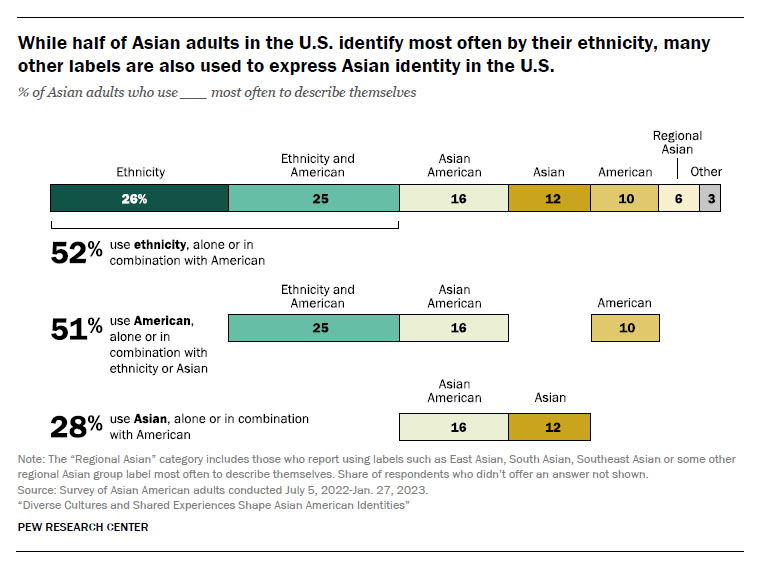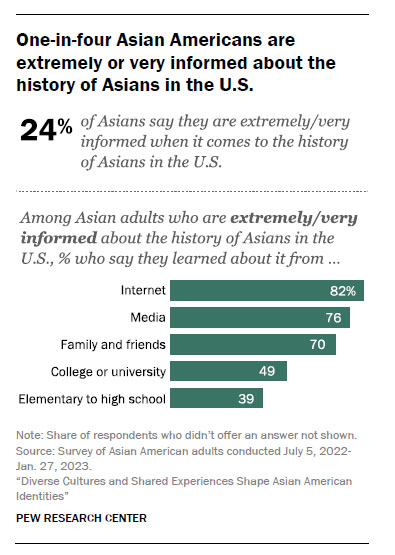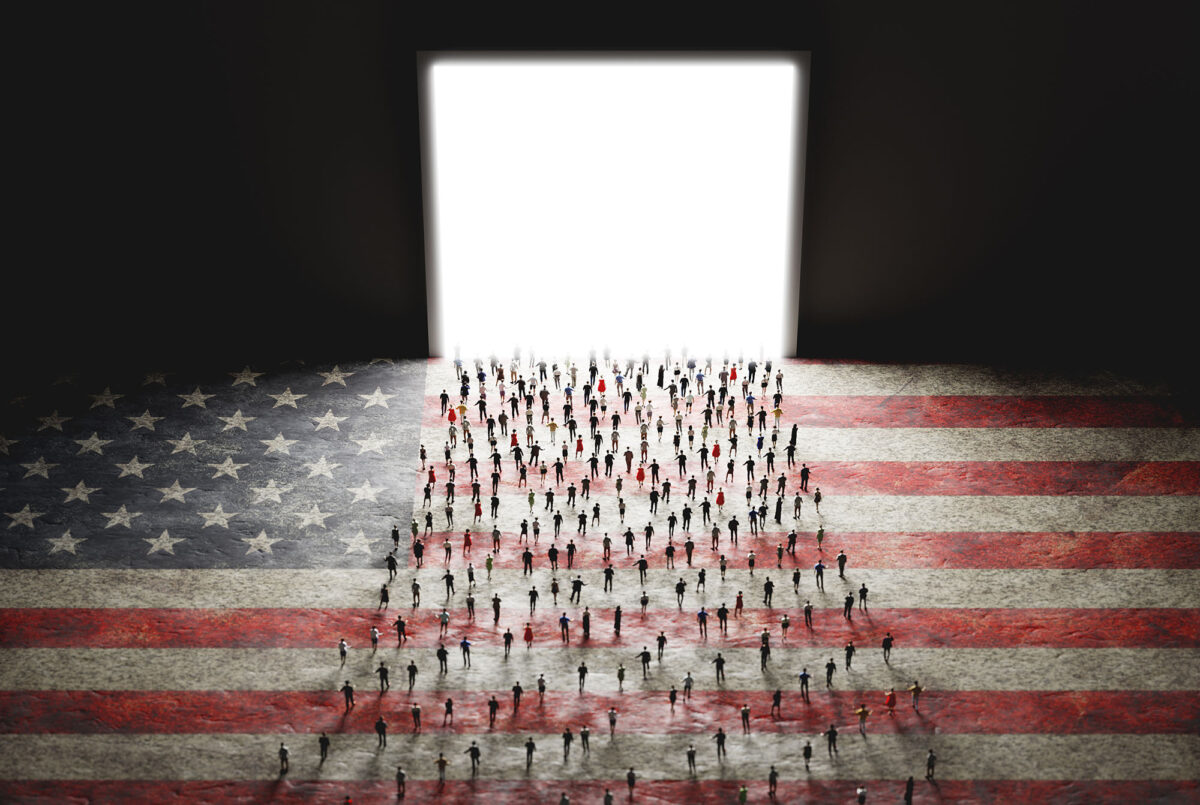In a new survey, Pew Research has found that Asian Americans are evolving in our understandings of identity and shared experience, with evidence that Asian Americans are increasingly more likely to see themselves as a group that is politically isolated from mainstream America.
In the large national study conducted between July 2022 through to July 2023, and covering a period of widespread anti-Asian hate including the aftermath of the Atlanta shooting that killed 8 including 6 Asian/Asian American women, Pew surveyed over 7000 Asian/Asian American adults from the five largest East, Southeast, and South Asian American ethnic groups from all 50 states. The survey was conducted in six languages including Chinese, English, Hindi, Korean, Tagalog, and Vietnamese. Survey results were augmented by findings from pre-survey focus groups conducted on Asian and Asian American adults to capture the perspectives of other Asian American ethnic groups.

Consistent with earlier findings from the 2016 National Asian American Survey 2016 survey analyzed by AAPI data, only about 16% of survey respondents self-identify as Asian American, suggesting that pan-ethnic solidarity remains challenging for our group. Interestingly, those who don’t identify as Asian American are more likely now than in 2016 to drop the “-American” identifier: only 25% (vs. 49% in 2016) add “American” after their ethnic group, and the percent of Asian Americans who self-identify only by their ethnicity or as “Asian” has more than doubled. This striking change may reflect the current racial and political climate in which there have been over 10,000 self-reported incidents of anti-Asian hate, and a separate survey by the National Asian Pacific American Women’s Forum released in March that three-fourths of all Asian American and Pacific Islander women have experienced racism or discrimination the past year. (Importantly, the survey methodologies differ between all the studies mentioned above, and may also explain some differences in results.)
“The problem is when we’ve been invisibilized and dismissed as the ‘other,’” said Sung Yeon Choimorrow, NAPAWF’s Executive Director, in an interview with NBC Asian America in March.
The chilling effect of being perpetually “Other’d” — both throughout Asian American history and more acutely in the last 3 years under COVID — may have shaped Asian American attitudes on their own racial identity. In 2016, two-thirds of Asian Americans cited shared political, racial, cultural and economic interests as important commonalities that unite the Asian American community across ethnic, linguistic, and generational divides. In their recent study, Pew’s survey results further underscore Asian Americans’ relationship to their group identity: finds that 59% of Asian Americans feel that the experiences of Asians in the U.S. affect them personally, and 68% believe that Asian American politics should be prioritized by our elected leaders. Furthermore, in Pew’s survey, 62% of registered voters identify with the values of the Democratic party, even while a survey conducted last year by APIA Vote finds that only 44% explicitly self-identify as Democrats. Importantly, many Far Right voices have increased xenophobic and anti-immigrant fear-mongering in the last year. This heightened climate of fear may have negatively impacted Asian Americans’ perspectives on their future in America: 27% of Asian Americans feel the “American Dream” (however respondents interpret that term) is out of reach to them.
Interestingly, while most Asian Americans are less inclined to self-identify with the “-American” identity, there are important differences related to generation and immigration status. US-born Asian Americans are still significantly more likely than first-generation immigrants to self-identify as Asian American or American only. This may reflect the fact that US-born Asian Americans are more likely to have mixed race social groups: Pew finds that only 38% of US-born Asian Americans (vs. 56% of foreign-born Asian Americans) say that all or most of their friends are Asian American. Regardless of generation or immigration status, 9 out of 10 Asian Americans say they are comfortable with someone engaging in interethnic or interracial marriage within their family.

Sadly, Asian Americans agree that Asian American history remains largely inaccessible. Only 24% of Asian Americans say they feel very informed about Asian American history; of those, most say they learn this information through the internet, the media, or from family or friends. Less than half say they learned about Asian American history from school. Even so, Pew finds that second-and third-generation Asian Americans say they feel more informed about Asian American history than recent immigrants; although whether this reflects greater interest in learning Asian American history or better facility with the digital and English-language information sources for that history is unclear.
As the Asian American population continues to grow in size and political influence, surveys like these and other groups provide key insights into the evolving viewpoints of our community — including how experiences of racism are affecting us as well as our ongoing demands for civil rights, an end to racial violence, and improved access to ethnic studies. Our political leaders must pay attention to these data on the Asian American electorate and our interests, especially as we head into the next national election.
The full results of the recent Pew survey can be found here.

